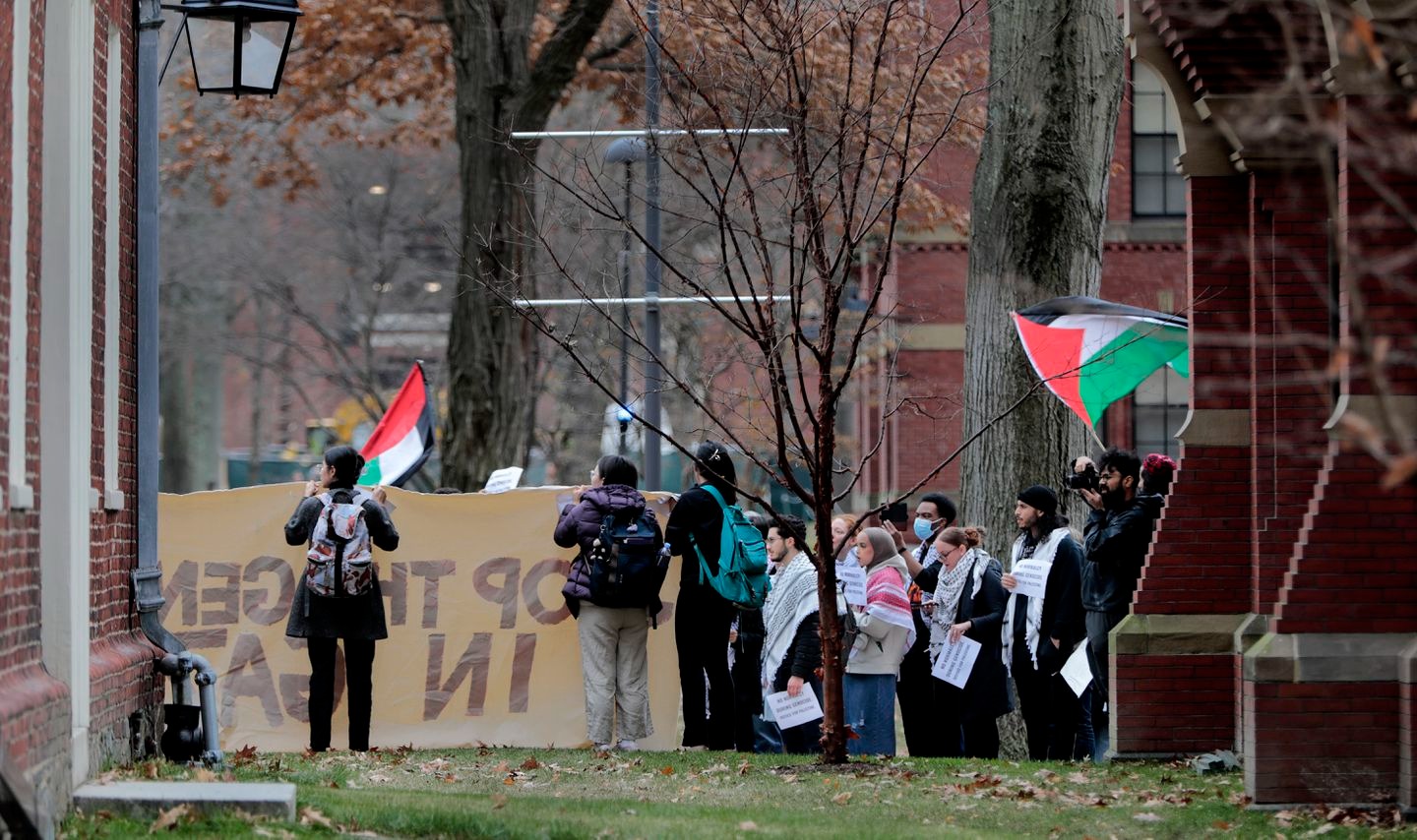02/06/24 Reposted from bostonglobe.com
The Department of Education on Tuesday opened a discrimination investigation into Harvard University’s alleged failure to protect Muslim and Palestinian students from discrimination and intimidation, one week after a legal group representing 14 students filed a federal civil rights complaint.
In the complaint filed by the Muslim Legal Fund of America on Jan. 30, the students said the university failed to protect them from discrimination, threats, and targeted harassment due to their Muslim, Arab, or Palestinian backgrounds, or their pro-Palestinian views.
The DOE’s Office of Civil Rights, as of Feb. 6, is investigating Harvard for discrimination involving “shared ancestry,” according to the department’s website.
A spokesperson for the DOE said: “The department does not comment further on pending investigations.”
Christina Jump, a lawyer with the Muslim Legal Fund of America, said students were targeted for their pro-Palestinian views and expressions of Palestinian solidarity, such as wearing a keffiyeh, a traditional scarf associated with the Palestinian liberation movement.
In a statement issued Tuesday, Jump said: “We look forward to these students having their complaints taken seriously and finally investigated fully. Harvard failed these students. It did not act when it could have and should have, and allowed a bad situation to get much worse. We trust that the Office of Civil Rights will do what Harvard did not and create concrete, usable solutions.”
The university did not respond to a request for comment Tuesday evening.
Since the Oct. 7 Hamas-led attack on Israel, the fallout from that brutal incursion, and the retaliatory war it sparked in the Gaza Strip, has split Harvard’s campus. There were protests, charges of antisemitism and Islamophobia, and fury about Harvard’s response, especially from some Jewish, Muslim, and Palestinian students who said the university turned its back on them during the turmoil that consumed the fall semester and stretched into the new year.
Harvard’s turmoil began on Oct. 7, after more than 30 student groups co-signed a statement that held “the Israeli regime entirely responsible for all unfolding violence” and said “[t]oday’s events did not occur in a vacuum.”
Critics, including lawmakers, denounced the statement, which came as Israel was still counting its dead, as a justification for terrorism. The attack killed about 1,200 Israelis and included the murder of families in their homes, a massacre at a music festival, and kidnapping of children and the elderly. The statement’s authors said they sought to place the attack in the context of the decades of violence of the Israeli-Palestinian conflict and what they described as Israel’s longtime oppression of Palestinians.
Then the trucks appeared. Emblazoned with photos of students connected to the statement beneath the words “Harvard’s Leading Antisemites,” the trucks circled Harvard Square and, eventually, drove around in some students’ hometowns. Some business executives pledged to blacklist any student associated with the statement. At least one job offer was revoked.
Interim president Alan Garber created two task forces in January to combat antisemitism and Islamophobia. He also sent a statement to the campus community emphasizing the importance of free speech, as well as the limits of campus protest.
Chelsea Glover, a lawyer with the Muslim Legal Fund of America, applauded “DOE’s swift action” in Tuesday’s statement
“When Harvard students were being harassed and doxxed by their peers and outside parties for months, Harvard officials brushed them to the side and instead met with prominent donors and alumni who encouraged the student harassment and doxxing,” Glover said. “These students rightly felt abandoned. Harvard’s primary responsibility should be to its current students, not wealthy donors and alumni with personal agendas that harm students who support Palestinian freedom.”
At least six Harvard alumni were making a last-ditch effort to gather more than 3,000 alumni signatures each by a Wednesday deadline to become candidates for Harvard’s Board of Overseers.
That body, one of Harvard’s two governing boards, consists of dozens of alumni elected by alumni. Together with the top governing board known as the Harvard Corporation, the Board of Overseers is meant to shape the school’s agenda and ensure it remains true to its educational mission.
The corporation has faced intense criticism in recent months from professors, students, and alumni over its handling of the campus turmoil and the downfall of former president Claudine Gay, whom the corporation’s members selected to serve as president. The corporation is also facing two investigations from a congressional committee into its handling of allegations of plagiarism against Gay and how the school responded to resurgent antisemitism. Gay, Harvard’s first Black president, resigned on Jan. 2.

